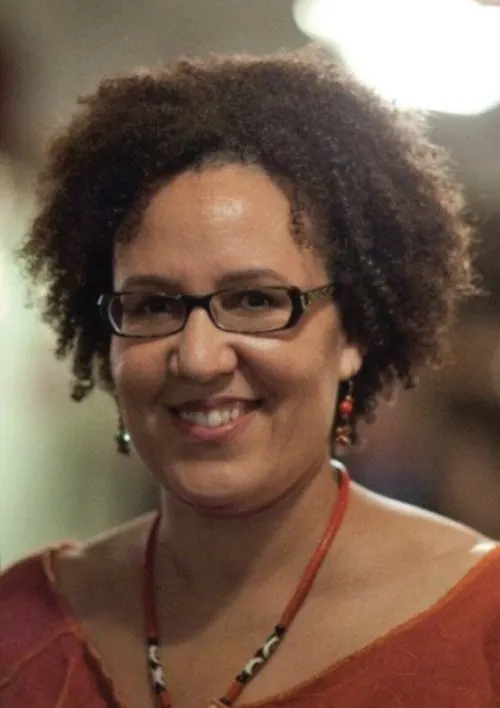
Design is how we make life interesting. Like air or sunshine; where would we be without design?
Rebecca Ngola is a designer who has lived and worked in Africa and the US. She holds a bachelor’s degree in Communication Arts from Otis College of Art & Design and a Master of Fine Arts in Service Design from The Savannah College of Art and Design. After almost two decades in a graphic design career, she scratched the itch to expand her boundaries and learn something new: service design. She has since applied her skills in many industries—most recently health care and finance—and continues to test what it means to design holistic and inclusive service systems.
Rebecca is currently guiding the inaugural cohort for the M.A. in Design focused on Design in Health in her DES 397 – Service Design course. She made time to discuss her thoughts on design, joy and food. Read more below.
Q: What does design mean to you?
RN: Design is how we make life interesting. Like air or sunshine; where would we be without design? It’s the reminder that we have choices and can make things better.
Q: What is service design?
RN: Service design is about understanding people’s needs and motivations to engage a service, and then orchestrating all the elements of that service (other people, the place/environment, objects and communications) to help people accomplish their goal and create value for all involved.
Q: How has your career path led you to service design?
RN: I landed in service design after a long career in graphic design. I was restless and tired of the snobbery of the graphic design field, so the holistic, collaborative cross-disciplinary aspect of service design appealed to me. I felt that this new way of thinking would expand the scope of design and help me deliver something more meaningful and sustainable to clients. Plus I needed a change and wanted to do something fun that would challenge me and give me the opportunity to make a real difference in people’s lives.
Q: How would you describe your job to a 2nd grader?
RN: I wouldn’t. I’d just show them in the context of something they are doing and can relate to.
Q: How are you pivoting your class offerings during COVID? What are the challenges and benefits to this experience?
RN: Class is all online now, which means having to figure out the best digital ways to engage students and deliver content. Service design is a collaborative activity; thankfully virtual whiteboards make it possible to work together without crowding a physical space or breathing on each other. Another benefit is no travel time to and from class. Zoom is awkward, but I think I’d be awkward regardless, haha.
Q: What’s bringing you joy lately?
RN: Watching my orchid bloom and my hydroponic garden of lettuce grow! Also, making pizza from scratch. I take advantage of the hot humid weather and put the dough outside to rise. Super satisfying to punch it down too, like popping bubble wrap.
Q: If you had to eat one meal every day for the rest of your life what would it be?
RN: Tough one! I need diversity, so I’d say a cuisine over one meal. But even then, I’d be hard pressed to choose between Indian and Mediterranean. So, give me access to protein, fresh veggies, olive oil and some spices, and I’ll create several meals I can live on for the rest of my life.
Q: What’s your most used emoji?
RN: It’s a tie between ? and ?.

